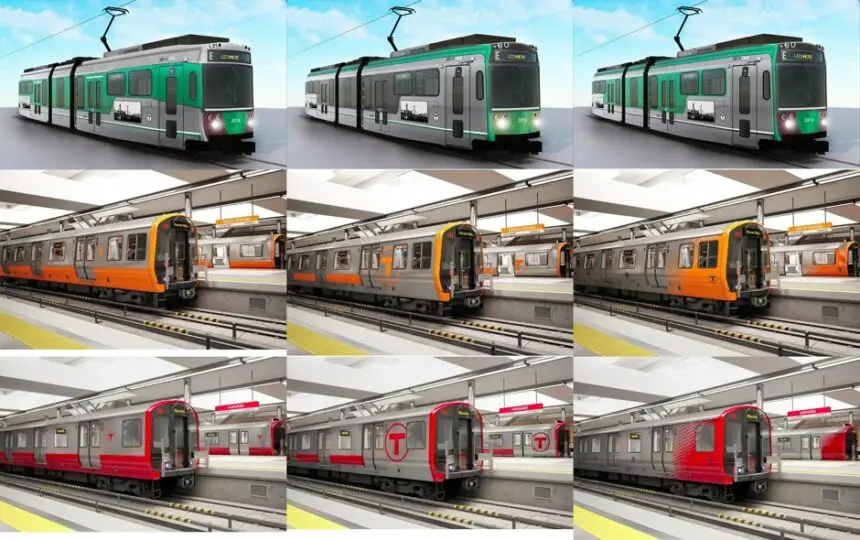The Board of Directors of the Massachusetts Bay Transportation Authority (MBTA) recently unanimously approved an ambitious investment plan for fiscal years 2025-2029. The $9.6 billion plan marks a crucial milestone for the future of the region’s transit system. This amount includes $843 million in new funding to modernize, expand and improve the network’s safety and reliability.
The Fiscal Year 2025-2029 Investment Plan (FY25-29 MBTA CIP) serves as the strategic framework for investments needed to maintain and improve the MBTA’s transit system, according to a release from the communications office of New England’s largest transit company.
Phillip Eng, General Manager and CEO of the MBTA, expressed his gratitude to the Board of Directors for their unanimous support and stressed the importance of public participation in the development of this plan.
“This plan is the result of extensive collaboration with the communities we serve,” said Eng. “It reflects our commitment to providing safe, reliable and accessible transit service,” he added.
The FY25-29 plan includes more than 640 distinct investment projects, each aimed at modernizing, improving and strengthening the MBTA’s network. Notable investments include:
-North Station Draw 1 Bridge Replacement. This crucial commuter rail project will serve the Haverhill, Lowell, Newburyport/Rockport and Fitchburg lines.
Decarbonized service along the Fairmount line**: Introduction of a 20-minute service, aimed at reducing the carbon footprint and improving train frequency.
In addition to the MBTA’s internal funding, Boston Metropolitan Planning (MPO) will contribute $26.6 million to the FY25-29 plan.
This external funding will cover six projects, including early rail modernization actions and improvements to Boston’s Nubian Square station. The MPO is using a combination of federal and state funding sources to program these investments, underscoring the importance of multiple partnerships in achieving the MBTA’s goals.
The FY25-29 MBTA CIP prioritizes several key areas, including:
– Ensuring the protection of passengers and staff by upgrading critical infrastructure and adopting new safety technologies.
– Improving punctuality and service performance to deliver a more consistent and predictable user experience.
-Modernization: Updating aging equipment and infrastructure to meet current and future user needs.
– Accessibility: Ensure that all passengers, including those with disabilities, can use MBTA services without obstacles.
– Sustainability and resilience: Adopting environmentally friendly practices to reduce the network’s environmental footprint and improve its ability to withstand climate challenges.
The process of developing the plan included extensive public consultation, allowing area residents to give their input on proposed investments, according to MBTA CEO. Phillip Eng emphasized the importance of this community involvement, saying that user feedback plays a crucial role in guiding the MBTA’s priorities.
“Our mission is to serve the transportation needs of all residents in our region,” Eng added. “That’s why it’s essential that we listen to and incorporate their concerns and suggestions into our planning.”
With the approval of this five-year plan, the MBTA is well positioned to make significant progress in transforming its network.
The projects included in the plan are designed not only to meet immediate needs, but also to prepare the system for future challenges.
By aligning investments with the strategic goals of safety, reliability, modernization, accessibility, sustainability and equity, the MBTA aspires to create a more robust and resilient transit system, as promised by the new CEO.
The $9.6 billion investment plan for fiscal years 2025-2029 represents a major opportunity for the MBTA to renew and strengthen its transit network. Through a combination of internal and external funding, and a focus on clear strategic priorities, the MBTA is committed to providing high-quality service to the region’s residents.
The unanimous approval of the Board of Directors and the active participation of the public testify to the strong support for this initiative.
As the MBTA prepares to implement this ambitious plan, the focus remains firmly on improving safety, reliability and accessibility for all transit users, says the Massachusetts Bay Transit Authority release.







